- Home
- About us
- Activities
-
About us
- News & Update
- Library
- Countries
- extra
- contact
activities
Click Show/hide
Climate Change & Disaster
Since the Asian Tsunami recovery effort, ACHR has been supporting many people centred recovery efforts, due to climate change and natural disasters, and learning from friends throughout the region. This section is still under construction, however during the next few months we will be updating with stories of activities during the Tsunami recovery and throughout the period since.
ACHR / ACCA Support for Disasters Recovery in Asia
Of all the poor and vulnerable groups in Asian cities, those hit by disasters are often the poorest and most vulnerable of all. Besides losing family members, houses and belongings, many also lose their livelihoods and support systems and find themselves facing eviction from their land.
As the frequency and severity of storms, floods, fires, land-slides and earthquakes increases, so too are the numbers of poor communities facing these disasters increasing.
Community networks in several countries are using ACCA support to try to turn these calamities into development opportunities, in which the disaster-affected communities themselves become the main actors in planning, managing and implementing their own relief and rehabilitation, as much as possible.
By the end of January 2014, a total of 30 community-driven disaster rehabilitation projects had been approved, in 10 countries including Cambodia , Burma , Philippines, Vietnam, Pakistan, Japan, India and Indonesia.
These 30 projects - which are all quite different - tell us something crucial about the role of the ACCA Program, and show how many interesting and creative solutions are possible when groups who believe in the power of people have access to flexible funds - even if they are very modest! - to do something.
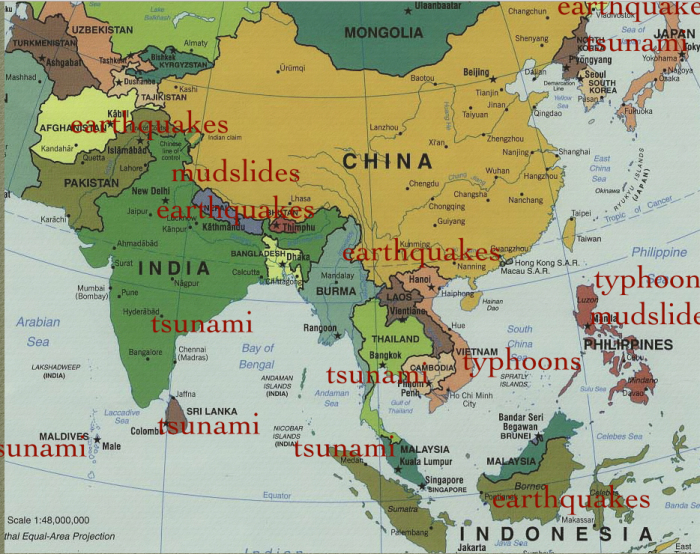
Below are some recommendrd ACHR documents detailing our activties and strategies to implement people centred disaster prevention and recovery.
All are also available in the DOWNLOADS LIBRARY above
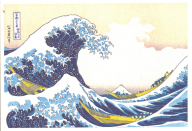 SEEING A DISASTER AS AN OPPORTUNITY – HARNESSING THE ENERGY OF DISASTER SURVIVORS FOR CHANGE DIANE ARCHER AND SOMSOOK BOONYABANCHA - from the Journal of IIED UK
SEEING A DISASTER AS AN OPPORTUNITY – HARNESSING THE ENERGY OF DISASTER SURVIVORS FOR CHANGE DIANE ARCHER AND SOMSOOK BOONYABANCHA - from the Journal of IIED UK
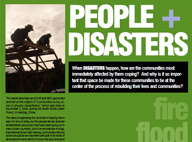 When DISASTERS happen, how do communities most affected by them cope? And why is it so important that space be made for these communities to be at the centre of the process of rebuilding their lives and communities ? Special Report 24 pages of text and photos from 11 countries in Asia coping with disasters.
When DISASTERS happen, how do communities most affected by them cope? And why is it so important that space be made for these communities to be at the centre of the process of rebuilding their lives and communities ? Special Report 24 pages of text and photos from 11 countries in Asia coping with disasters.
From ACHR's workshop at WUF Nanjing.

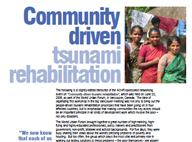 Survivors Speak
Survivors Speak
The report is a slightly-edited transcript of the ACHR-sponsored networking event on “Community-driven tsunami rehabilitation”, which was held on June 20, 2006, as part of the World Urban Forum, in Vancouver, Canada. The idea of organizing this workshop in the big Vancouver meeting was not only to bring out the people-driven tsunami rehabilitation processes that have been going on in four affected countries, but to emphasize that making communities the key actors should be an important principle in all kinds of development work which involve the poor – not only disasters..
 PDF file 1.3 Mgs text graphics photos
PDF file 1.3 Mgs text graphics photos
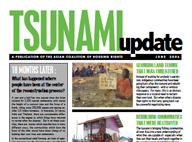
 16 pages text and photos PDF file 1.3 Mgs
16 pages text and photos PDF file 1.3 Mgs

Another Reminder from Survisors of past disasters:
In 2006 ACHR, UNDP and CODI Thailand organised a meeting of disaster survivors and their supporters - from more than 10 countries in Asia - over 100 people: They talked about their recovery efforts. Here is a summary of their answers to 3 important questions:
1. Why is people centred recovery important ?
2 What are the tools, mechanisms and processes which enable affected people and their communities to drive their own recovery process ?
3. How can we build linkages, networks and communications channels between affected communities ?

ACHR Disaster Resilience Regional Workshop in Jogjakarta, Indonesia 2012
Summary Report: 70 local participants, including community architects and community representatives, and 25 international participants from Thailand, Vietnam, Sri Lanka, Japan, and the Philippines. Three days of in-depth exchanges on their various experiences of coping with disasters, both in terms of preparing for future disasters and rebuilding after a disaster. Local communities affected by the eruption of Mt Merapi in 2010 served as case study sites for field visits.
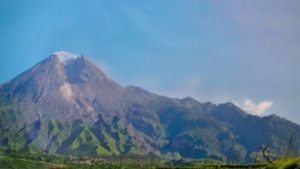
 A 26 page report 785 KBs PDF
A 26 page report 785 KBs PDF
TAP the ENERGY & STRENGTH
'Having worked with earthquake rehabilitation and famine and drought (though not even a fraction of the disaster the Tsunami victims have suffered) I have always marveled at the remarkable energy and strength that communities put into rehabilitating themselves. A lot of aid agencies do not realize this. Aid could be far more meaningful with this realization.'
Arif Hasan in Pakistan ......
....
.
ACHR / ACCA Support for Disasters Recovery in Asia
Of all the poor and vulnerable groups in Asian cities, those hit by disasters are often the poorest and most vulnerable of all. Besides losing family members, houses and belongings, many also lose their livelihoods and support systems and find themselves facing eviction from their land.
As the frequency and severity of storms, floods, fires, land-slides and earthquakes increases, so too are the numbers of poor communities facing these disasters increasing.
Community networks in several countries are using ACCA support to try to turn these calamities into development opportunities, in which the disaster-affected communities themselves become the main actors in planning, managing and implementing their own relief and rehabilitation, as much as possible.
By the end of January 2014, a total of 30 community-driven disaster rehabilitation projects had been approved, in 10 countries including Cambodia , Burma , Philippines, Vietnam, Pakistan, Japan, India and Indonesia.
These 30 projects - which are all quite different - tell us something crucial about the role of the ACCA Program, and show how many interesting and creative solutions are possible when groups who believe in the power of people have access to flexible funds - even if they are very modest! - to do something.

Below are some recommendrd ACHR documents detailing our activties and strategies to implement people centred disaster prevention and recovery.
All are also available in the DOWNLOADS LIBRARY above
 SEEING A DISASTER AS AN OPPORTUNITY – HARNESSING THE ENERGY OF DISASTER SURVIVORS FOR CHANGE DIANE ARCHER AND SOMSOOK BOONYABANCHA - from the Journal of IIED UK
SEEING A DISASTER AS AN OPPORTUNITY – HARNESSING THE ENERGY OF DISASTER SURVIVORS FOR CHANGE DIANE ARCHER AND SOMSOOK BOONYABANCHA - from the Journal of IIED UKDisasters have tragic consequences, and people with the least resources at hand to rebuild their lives are often the worst affected. The traditional response to disasters is to provide immediate relief, without considering how the process of rebuilding lives and communities can be a positive opportunity for change. This opportunity can be facilitated in two ways: first, by having a clear understanding of how disaster survivors are not victims but agents for change; and second, by providing the tools and techniques to facilitate the change process. Case studies from Asia demonstrate how disaster-affected communities have rebuilt not only their homes but also their livelihoods, and have been empowered as a result.
 2011 13 pages 1.4 MGBs
2011 13 pages 1.4 MGBs
 2011 13 pages 1.4 MGBs
2011 13 pages 1.4 MGBs When DISASTERS happen, how do communities most affected by them cope? And why is it so important that space be made for these communities to be at the centre of the process of rebuilding their lives and communities ? Special Report 24 pages of text and photos from 11 countries in Asia coping with disasters.
When DISASTERS happen, how do communities most affected by them cope? And why is it so important that space be made for these communities to be at the centre of the process of rebuilding their lives and communities ? Special Report 24 pages of text and photos from 11 countries in Asia coping with disasters.From ACHR's workshop at WUF Nanjing.

 Survivors Speak
Survivors SpeakThe report is a slightly-edited transcript of the ACHR-sponsored networking event on “Community-driven tsunami rehabilitation”, which was held on June 20, 2006, as part of the World Urban Forum, in Vancouver, Canada. The idea of organizing this workshop in the big Vancouver meeting was not only to bring out the people-driven tsunami rehabilitation processes that have been going on in four affected countries, but to emphasize that making communities the key actors should be an important principle in all kinds of development work which involve the poor – not only disasters..
 PDF file 1.3 Mgs text graphics photos
PDF file 1.3 Mgs text graphics photos 
TSUNAMI UPDATE 2006
June 2006 Tsunami Update 18 months later: What has happened where people have been at the centre of the reconstruction process? Land tenure; rebuilding communities; restoring livelihoods; reviving cultures.
 16 pages text and photos PDF file 1.3 Mgs
16 pages text and photos PDF file 1.3 Mgs
TSUNAMI IN ASIA - PEOPLE CENTRED RECOVERY EFFORTS
Another Reminder from Survisors of past disasters:
In 2006 ACHR, UNDP and CODI Thailand organised a meeting of disaster survivors and their supporters - from more than 10 countries in Asia - over 100 people: They talked about their recovery efforts. Here is a summary of their answers to 3 important questions:
1. Why is people centred recovery important ?
2 What are the tools, mechanisms and processes which enable affected people and their communities to drive their own recovery process ?
3. How can we build linkages, networks and communications channels between affected communities ?

ACHR Disaster Resilience Regional Workshop in Jogjakarta, Indonesia 2012
Summary Report: 70 local participants, including community architects and community representatives, and 25 international participants from Thailand, Vietnam, Sri Lanka, Japan, and the Philippines. Three days of in-depth exchanges on their various experiences of coping with disasters, both in terms of preparing for future disasters and rebuilding after a disaster. Local communities affected by the eruption of Mt Merapi in 2010 served as case study sites for field visits.

 A 26 page report 785 KBs PDF
A 26 page report 785 KBs PDFTAP the ENERGY & STRENGTH
'Having worked with earthquake rehabilitation and famine and drought (though not even a fraction of the disaster the Tsunami victims have suffered) I have always marveled at the remarkable energy and strength that communities put into rehabilitating themselves. A lot of aid agencies do not realize this. Aid could be far more meaningful with this realization.'
Arif Hasan in Pakistan ......
....
.




